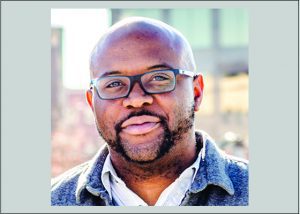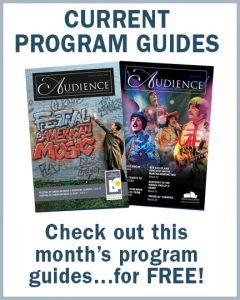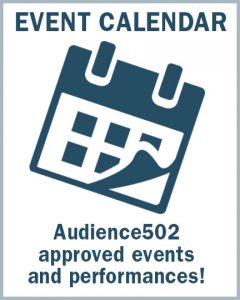 Hype Man is one of Actors Theatre of Louisville’s production for the 2019-2020 season. The hip-hop centric drama touches on issues of race, class and music. Here’s what playwright Idris Goodwin had to say Actors’ resident dramaturg, Hannah Rae Montgomery.
Hype Man is one of Actors Theatre of Louisville’s production for the 2019-2020 season. The hip-hop centric drama touches on issues of race, class and music. Here’s what playwright Idris Goodwin had to say Actors’ resident dramaturg, Hannah Rae Montgomery.
Hannah Rae Montgomery: What inspired you to write Hype Man?
Idris Goodwin: On a basic level, Hype Man is about a band. It’s a workplace drama, the business just happens to be rap music.
Hype Man is the latest of my “break beat plays.” I made a commitment, starting with How We Got On (which premiered in the 2012 Humana Festival), to write a series of plays about hip-hop. And I don’t just mean that the plays feature rap. They’re also investigating how the invention of hip-hop has affected America, our relationships to one another around issues of race, and the importance of this music for young people trying to find a voice. Hype Man addresses questions like: what does it mean to be an ally? If you’re participating in an art form that came from protest movements and represented the disenfranchised, do you have a responsibility to honor those roots?
The play is also exploring what it means to be a hype person. The role of the hype man/woman/person in a hip-hop crew is to help the primary rapper express their message. The hype person’s like a living exclamation point, an accelerator or engine to fuel what the main rapper’s trying to get out there. Hip-hop is about saying difficult things that no one wants to say but doing it in such a slick way that people nod their heads in agreement. Through the working relationship between Verb and Pinnacle, the hype man and main rapper in this story, the play’s looking at hip-hop as a countercultural art form that’s become more mainstream.
HRM: What do you hope audiences will take from the experience of seeing Hype Man?
IG: I wrote this play during the height of the Black Lives Matter movement. The conversation around racially motivated police brutality, and black folks not feeling safe in all spaces, isn’t new. It’s been going on within the black community and in hip-hop for a long time. But the Black Lives Matter movement started mainstream discourse around this phenomenon. The immediate response from some was censorship, of denying that the black body exists under threat. A lot of people weren’t open to hearing what was being said.
Hype Man
September 11-October 13, 2019
Actors Theatre of Louisville
Tickets and more information
Hype Man is all about that tension around who has the privilege of remaining unaffected. The conflicts that emerge between Verb (who’s black) and Pinnacle (who’s white) in the wake of a police shooting in their city illustrate that black folks and white folks can share a space, we can consider ourselves friends, but there’s a disconnect in how we experience the world. Verb and Pinnacle have had a real connection since childhood, but there’s a fundamental difference in each character’s sense of urgency related to the shooting. For Pinnacle, the issue of police brutality gets to be more theoretical. For Verb, it’s like, No, this could happen to me or my family at any time. Hype Man exists in that intersection. It’s asking the audience to consider how we can find ways to say, “I may not completely know where you’re coming from, but I’m there for you, and that’s more important than whether I understand your experience on a personal level.”
HRM: What excites you most about Hype Man being produced in Louisville?
IG: Again, Actors Theatre is where the first break beat play premiered! If that hadn’t happened, I don’t know that I would’ve written this series. Also, until now, I’ve never lived in the same city where I’ve received a major production. And to have this production happen at the top of Robert Barry Fleming’s first season as the new Artistic Director of Actors, while I’m Artistic Director of StageOne Family Theatre, which has its offices in the same building—that’s incredibly exciting. It feels like being part of a greater theatre moment.
It’s also exciting that Jess McLeod directed; she understands my work on a real molecular level. And there’s been great local collaboration. Steffan Clark, the choreographer, is from Owensboro, Kentucky. Plus there’s a character in the show, Peep One, who’s a beatmaker, meaning she creates the tracks that Pinnacle and Verb rap over. So I roped in Rhythm Science Sound, a married couple who are anthropologists, DJs, and beatmakers here in town, to provide custom beats. In the script, I encourage theatres producing Hype Man to identify beatmakers in their communities and invite them to make new tracks specifically for those productions. That way, the sounds in every production will have a different flavor because they’re reflecting that region.
Because theatre encompasses so many kinds of art—costume construction, dance, lights, music, painting, poetry—it’s important for us to reach out to artists beyond our usual collaborators. That allows us to learn from each other and make something new together.





